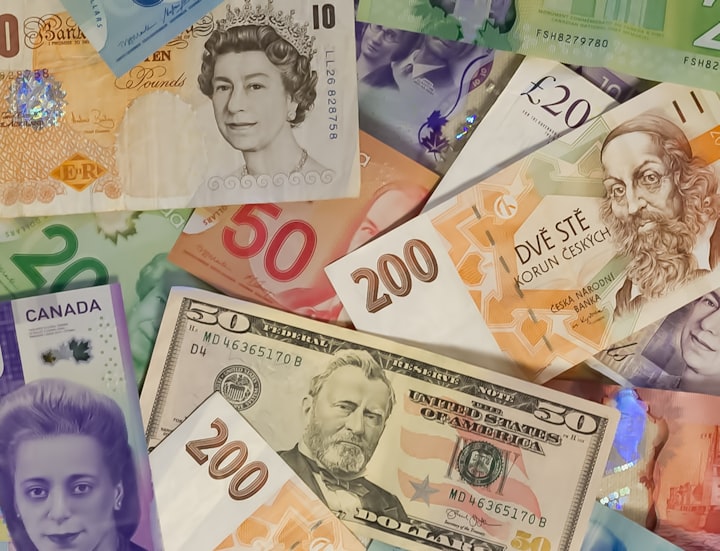Will Inflation Increase or Decrease in 2023?

Inflation, measured by the Consumer Price Index (CPI), is the rate at which the general level of prices for goods and services is rising, and subsequently, purchasing power is falling. The inflation rate in 2023 is a topic of debate among economists and financial experts, with some predicting an increase while others forecast a decrease. Let's take a look at these varying outlooks.
One argument for an increase in inflation in 2023 comes from CUNAs October 2022 economic forecast, which projected that the effective federal funds rate is expected to reach 4.6% in 2023. An increase in the federal funds rate may have an impact on the overall economy, which could lead to an increase in inflation.
Another potential cause of high inflation in 2023 is government policies such as stimulus checks and relief programs. According to Yahoo, a survey conducted by GOBankingRates showed that 62% of Americans were in favor of more stimulus or inflation relief checks in 2023, and in addition to stimulus checks, 19 states are offering relief in the form of tax refunds for the remainder of 2022. The irony here of "inflation relief checks" is that it's a form of money printing, and additional money in circulation can increase demand leading to rising inflation.
Another argument for why inflation might increase in 2023 is that it can be a self-fulfilling phenomenon, where consumers begin to expect prices to continue rising which results in increased demand in the short term, causing a chain reaction of increasing prices. This is often referred to as "expectations-augmented" inflation. According to The Balance, when prices are going up, people want to buy now rather than pay more later, which increases demand, and as a result, stores sell more and factories produce more now, and they are more likely to hire new workers to meet demand, which can lead to increased costs and prices. This spiral of increased demand and rising prices can perpetuate further and contribute to the increase in inflation rate in 2023
The Congressional Budget Office (CBO) also predicted that high inflation will persist into 2023, likely causing the federal government to take more action to address the issue according to CBS News.
Furthermore, a recent survey of CEOs by the Conference Board indicates that they expect high inflation to last into 2023 and even beyond, rising inflation is the second most common external business worry for CEOs. The expectation of the CEOs is in line with the trend of persistently high inflation and ongoing uncertainties about the economic recovery, which can lead to increased prices for goods and services.
On the other hand, several sources predict that inflation will decrease in 2023. Morningstar suggests that the inflation rate may decrease by the end of 2023 and forecasted inflation to average 2.6% over 2022-26. Morningstar's head of U.S. economics, Preston Caldwell told NextAdvisor, "with tightening monetary policy, we expect inflation to undershoot 2% in 2023 and 2024." Furthermore, Kiplinger predicts that the slowing economy is likely to bring the yearly inflation rate down to 3.2 percent by the end of 2023.
Then there is the much-criticized Inflation Reduction Act, which extended certain energy-related tax breaks and indexed for inflation the energy-efficient commercial buildings deduction beginning with the tax year 2023. Some believe this might reduce inflation. Yet the Congressional Budget Office confirmed that the Inflation Reduction Act will do nothing to decrease inflation.
Some even suggest that inflation might be starting to go down, even with prices going up. How? Reason points to a recent year-over-year reading in April 2022, which shows prices across the economy increased an average of 8.6 percent, up from 8.5 percent. Yet inflation might decrease. This is because, as they note, "CPI, which tracks price changes in a hypothetical basket of goods, can't tell the difference between price increases due to monetary inflation and price increases due to other causes, such as supply shocks, regulations, or changes in supply and demand." And since the money supply growth (monetary inflation) has slowed since the pandemic, this could lower inflation.
Overall, the predictions for inflation in 2023 vary, with some experts predicting an increase while others forecast a decrease. Several arguments for why inflation might increase in 2023 include The Federal Reserve's monetary policy, further government stimulus and relief programs, and further increasing demand. Some arguments why inflation could decrease include a slowing economy, government policies, and slowing money supply growth. Regardless of the varying outlooks, one thing is certain, we all like lower prices and are rooting got inflation to go down.




Comments ()